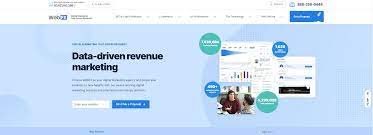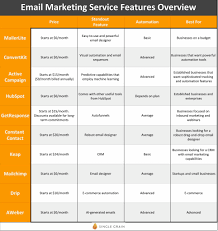The Importance of Google Ads PPC Management
Google Ads, formerly known as Google AdWords, is one of the most powerful online advertising platforms available to businesses today. Pay-Per-Click (PPC) advertising on Google allows businesses to reach their target audience effectively and drive valuable traffic to their websites.
However, managing a successful Google Ads PPC campaign requires expertise and constant monitoring to ensure optimal performance. This is where Google Ads PPC management services come into play.
What is Google Ads PPC Management?
Google Ads PPC management involves the strategic planning, implementation, and monitoring of pay-per-click advertising campaigns on Google. A professional PPC management service provider helps businesses maximise their ROI by effectively managing their ad campaigns.
The Benefits of Professional Google Ads PPC Management
- Expertise: Professional PPC managers have the knowledge and experience to create targeted ad campaigns that drive results.
- Optimisation: Continuous monitoring and optimisation of ad campaigns to improve performance and reduce costs.
- Keyword Research: Identifying high-performing keywords that attract relevant traffic to your website.
- Budget Control: Managing your budget effectively to maximise your return on investment.
- Reporting and Analysis: Providing detailed reports on campaign performance and making data-driven decisions for future improvements.
Choosing the Right Google Ads PPC Management Service
When selecting a Google Ads PPC management service provider, it’s essential to consider their track record, expertise, and transparency in communication. Look for a company that understands your business goals and can tailor their services to meet your specific needs.
By investing in professional Google Ads PPC management, businesses can unlock the full potential of their online advertising efforts and achieve significant growth in their online presence.
8 Essential Tips for Effective Google Ads PPC Management
- Clearly define your goals and target audience before setting up your Google Ads campaign.
- Use relevant keywords in your ad copy to improve ad relevance and performance.
- Regularly monitor and analyse the performance of your ads to identify areas for improvement.
- Optimise your landing pages to ensure they are aligned with your ad messaging and provide a good user experience.
- Set a budget that aligns with your goals and regularly adjust it based on performance data.
- Utilise ad extensions such as sitelinks, callouts, and structured snippets to enhance the visibility of your ads.
- Consider using remarketing campaigns to target users who have previously interacted with your website or ads.
- Stay updated on Google Ads best practices and updates to make informed decisions for your campaigns.
Clearly define your goals and target audience before setting up your Google Ads campaign.
Before launching your Google Ads campaign, it is crucial to clearly define your goals and target audience. By establishing specific objectives and identifying the audience you want to reach, you can tailor your ad content and targeting strategies to maximise the effectiveness of your campaign. Understanding your goals allows you to measure the success of your ads accurately, while defining your target audience ensures that your ads are shown to the right people at the right time. This strategic approach sets a solid foundation for a successful Google Ads PPC management campaign that drives valuable results for your business.
Use relevant keywords in your ad copy to improve ad relevance and performance.
Using relevant keywords in your ad copy is a crucial tip in Google Ads PPC management. By incorporating keywords that directly relate to your business and target audience, you can enhance the relevance of your ads and improve overall performance. Relevant keywords not only attract the right audience to your ad but also increase the chances of generating clicks and conversions. This strategic approach helps ensure that your ads are seen by users who are actively searching for products or services like yours, ultimately leading to a more successful PPC campaign.
Regularly monitor and analyse the performance of your ads to identify areas for improvement.
Regularly monitoring and analysing the performance of your Google Ads PPC campaigns is crucial for achieving optimal results. By keeping a close eye on key metrics such as click-through rates, conversion rates, and cost per click, you can identify areas that may need improvement and make necessary adjustments to enhance the effectiveness of your ads. This proactive approach allows you to refine your targeting, ad copy, and bidding strategies to maximise your ROI and drive better outcomes for your online advertising efforts.
Optimise your landing pages to ensure they are aligned with your ad messaging and provide a good user experience.
Optimising your landing pages is a crucial aspect of effective Google Ads PPC management. By aligning your landing pages with your ad messaging, you create a seamless user experience that enhances relevance and increases the likelihood of conversions. Ensuring that your landing pages provide valuable information and are user-friendly can significantly improve the overall performance of your PPC campaigns. A well-optimised landing page not only reinforces the message of your ads but also encourages visitors to take the desired action, ultimately leading to better results for your business.
Set a budget that aligns with your goals and regularly adjust it based on performance data.
Setting a budget that aligns with your goals is crucial in Google Ads PPC management. By establishing a budget that reflects your objectives, whether it’s to increase website traffic, generate leads, or boost sales, you can ensure that your advertising spend is optimised for maximum results. Regularly adjusting your budget based on performance data allows you to allocate resources where they are most effective, driving better ROI and overall campaign success.
Utilise ad extensions such as sitelinks, callouts, and structured snippets to enhance the visibility of your ads.
By utilising ad extensions like sitelinks, callouts, and structured snippets in your Google Ads PPC management strategy, you can significantly enhance the visibility and effectiveness of your ads. These extensions provide additional information to potential customers, making your ads more informative and compelling. Sitelinks direct users to specific pages on your website, callouts highlight key selling points, and structured snippets showcase additional details about your products or services. Incorporating these ad extensions not only increases the chances of users clicking on your ads but also improves the overall performance of your PPC campaigns by providing a richer user experience.
Consider using remarketing campaigns to target users who have previously interacted with your website or ads.
Consider incorporating remarketing campaigns into your Google Ads PPC management strategy to effectively target users who have previously engaged with your website or ads. By re-engaging with these users through targeted remarketing efforts, you can increase brand awareness, drive conversions, and ultimately boost the effectiveness of your advertising campaigns. Remarketing allows you to stay top-of-mind with potential customers and encourage them to take the desired action, leading to improved ROI and overall campaign performance.
Stay updated on Google Ads best practices and updates to make informed decisions for your campaigns.
Staying updated on Google Ads best practices and updates is crucial for effective PPC management. By keeping abreast of the latest trends and changes in the platform, businesses can make informed decisions that drive success in their campaigns. Whether it’s understanding new features, optimisation techniques, or policy updates, staying informed allows businesses to adapt their strategies and stay ahead of the competition in the dynamic world of online advertising.



